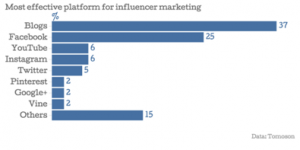— June 21, 2017

Mistakes in business are unfortunate but inevitable. Usually, they’re relatively minor and should be ignored after they’re corrected and you learn any lesson they contain. Some errors, however, can have a significant effect on your revenue, such as mistakes with your digital marketing. Here are four major digital marketing blunders that you can prevent.
- Moving Without a Plan
The digital marketing landscape isn’t uncharted and unruly like the Wild West, but it does require a well-thought-out plan for entry and continued participation. The nature of digital marketing changes frequently, often in major ways, such as when Google revamps its search algorithms and it is suddenly more difficult to achieve good search rankings. Digital marketing also differs significantly enough from traditional marketing in print media that it requires a separate approach.
Before undertaking digital marketing, devise a plan for creating, executing, and assessing the effort. Work with your internal experts or your outsourced partner to make this plan as detailed and accurate as possible, taking into account the advantages of the digital environment and the areas where issues might occur.
- Misunderstanding Your Audience
Demographic data, client personas, and other profile data can reveal a lot about your current customers as well as your ideal client. But as you move to apply this information, make sure it reflects an actual understanding of your customers and target market and how you can serve them.
Take advantage of all avenues available to you to obtain insight into your audience. Look to studies and observations of actual customer behavior to see what motivates them to buy your products and services and how they use them once they are acquired. Ask sales staff and others who make direct contact with customers how customers react, what they ask for, and what they need.
- Failing to Test and Measure
The effectiveness of your digital marketing can’t be allowed to rest on a single program or technique. To get the best results, you need to test your marketing methods and see which ones work best. For example, split test (or A/B test) your sales letters and sales sites to see which ones get more results. Gather data and measure factors such as response during the campaign and, after it’s over, analyze results to look for approaches that worked well and processes that should be abandoned.
While the need to carefully assess the data from your marketing is real, resist the temptation to overanalyze and worry over every bit of information. “Paralysis by analysis” can hinder your marketing, tie you up addressing concerns over issues that are irrelevant, and slow down your move to your next marketing campaign.
- Not Having Focused Content
Content is a vital component of a successful digital marketing strategy. Content that isn’t focused on the needs of these audiences, however, will be ineffective, if not outright useless and a waste of time.
When creating content for your marketing campaigns, maintain a focus on the needs of your leads, prospects, and customers and write material that they can use. Keep your content aimed at issues that affect your audience, that provides them with ways to address their particular pain points, or that gives them a new perspective on, or appreciation of, the services they need and that you provide.
Recognizing and preventing digital marketing mistakes, and recovering quickly from errors when they happen, can give you a significant edge in today’s marketplace.
Digital & Social Articles on Business 2 Community
(66)
Report Post




